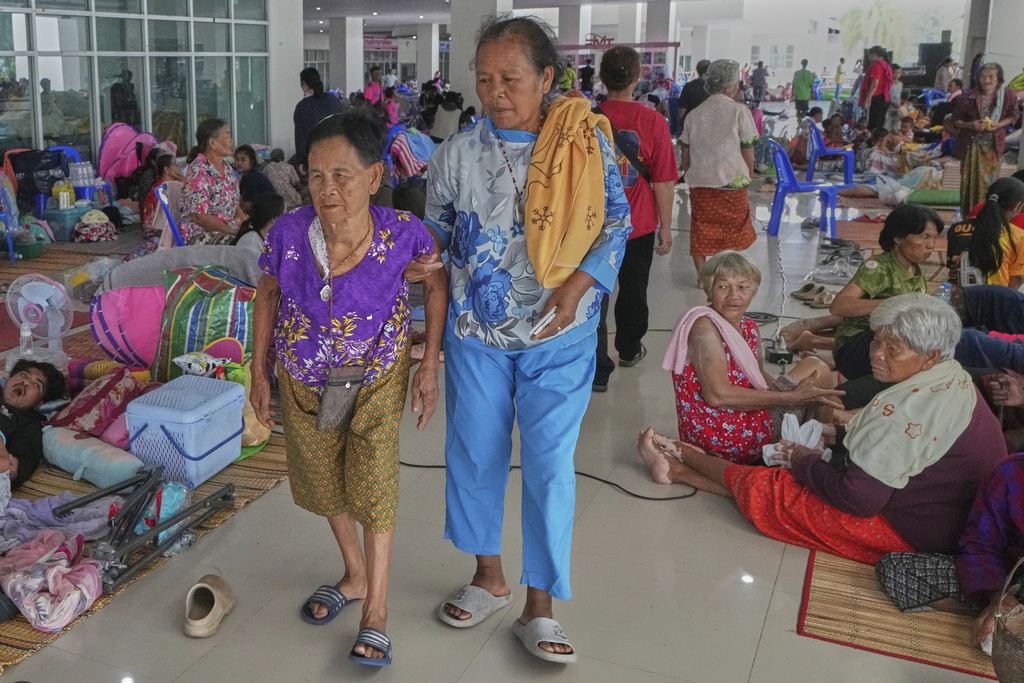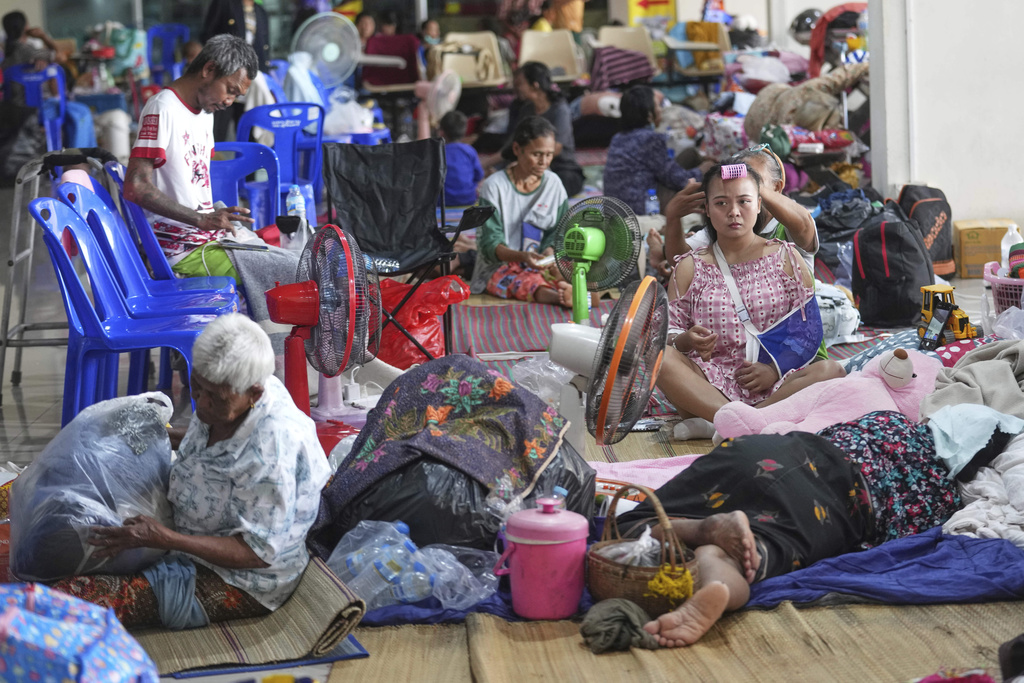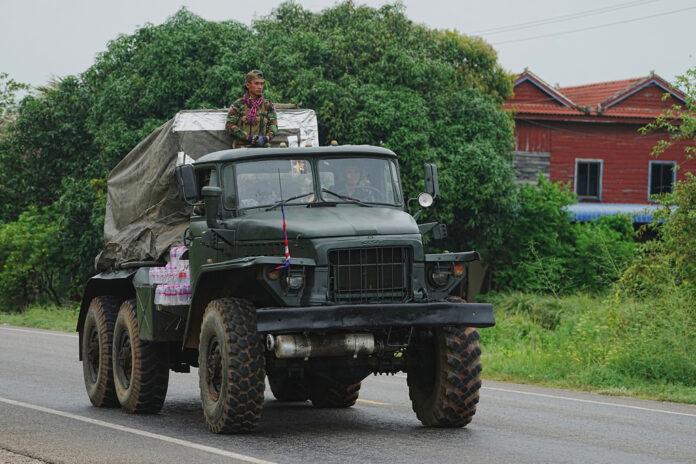SURIN, Thailand — Thailand and Cambodia have agreed to begin negotiations toward a ceasefire after U.S. President Donald Trump intervened in a deadly border conflict that has now entered its fourth day, leaving at least 33 dead and over 168,000 displaced.
On Saturday, Trump announced via Truth Social that he had spoken with both nations’ leaders and warned that trade deals could be suspended if hostilities continued. Following his intervention, Cambodian Prime Minister Hun Manet said his country had agreed to an “immediate and unconditional ceasefire,” noting that Thailand had also signaled willingness to halt attacks.
Thailand, however, adopted a more cautious tone. Acting Prime Minister Phumtham Wechayachai expressed appreciation for Trump’s involvement but emphasized the need for “sincere intention” from Cambodia. Both countries have recalled ambassadors, and Thailand has sealed its border crossings.

Despite these diplomatic gestures, heavy fighting persisted Sunday, particularly in Surin province. Thai officials accused Cambodian forces of shelling civilian areas and launching rocket attacks, including on the disputed Ta Muen Thom temple. Cambodia countered that Thai forces escalated the conflict with tank incursions and artillery barrages.
Thailand’s Foreign Ministry stated that battlefield operations would continue until Cambodia formally committed to talks. A spokesperson also accused Cambodia of violating human rights and humanitarian law, casting doubt on its intentions.
The violence began Thursday with a land mine blast that injured five Thai soldiers. Since then, 20 deaths have been reported in Thailand—mostly civilians—and 13 in Cambodia. Over 131,000 people in Thailand and 37,000 in Cambodia have been evacuated, with many villages abandoned and schools shut.
Residents caught in the conflict described a rapid descent into chaos. One evacuee, Pichayut Surasit, left his job in Bangkok to return home and protect his family. Others, like local vendor Bualee Chanduang, expressed hope for peace talks to end the violence.

The United Nations Security Council has called on ASEAN to step in as mediator. Human Rights Watch has condemned reported use of cluster munitions in civilian zones and urged both governments to safeguard noncombatants.
The 800-kilometre border has long been a source of tension, with periodic flare-ups. The current crisis was triggered by a deadly skirmish in May that further strained diplomatic ties and unsettled Thai domestic politics.



